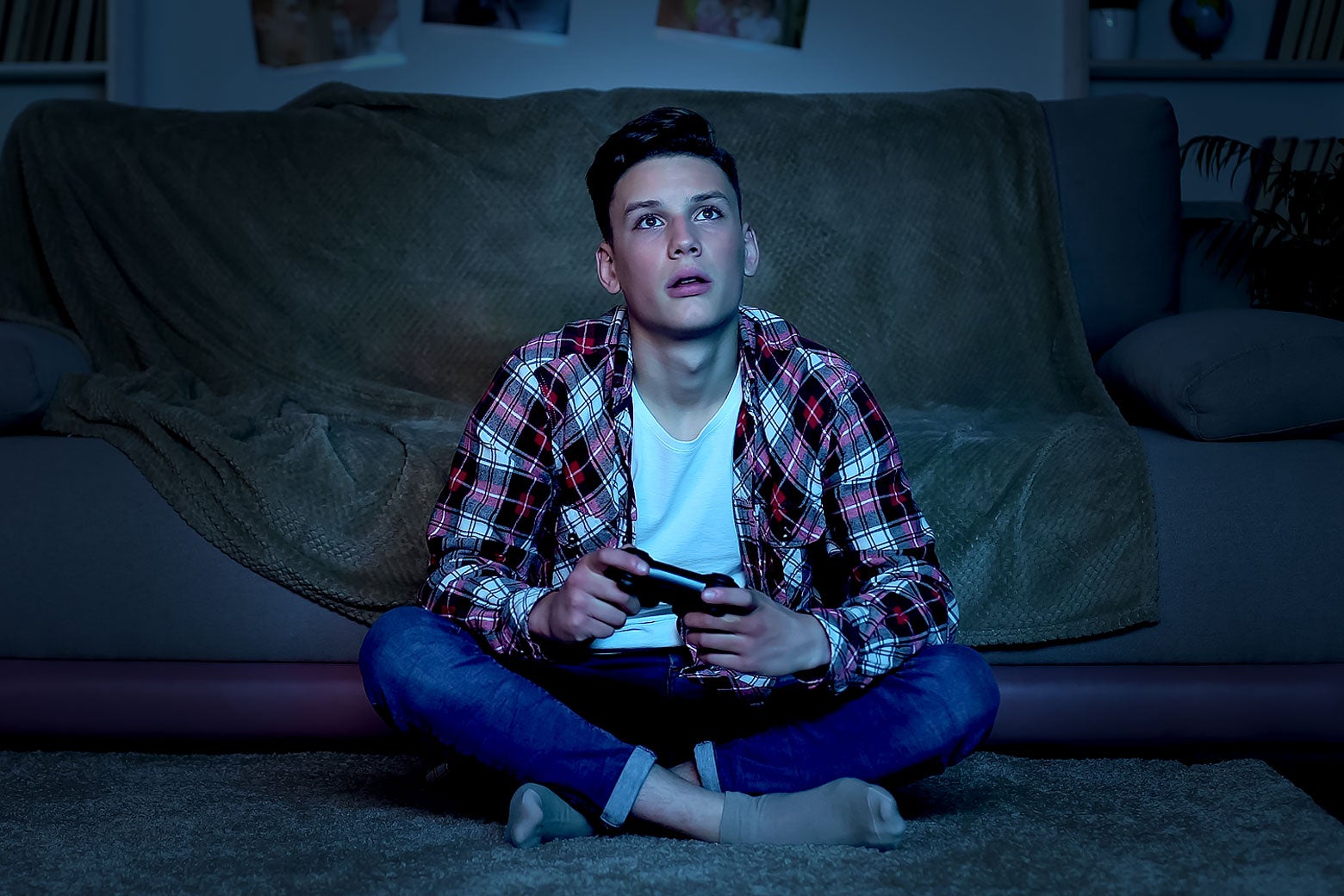World of Warcraft still exists in 2024. The game’s 10th expansion was released in August, and while it doesn’t command quite the same influence as it did during its early-millennium prime, millions of players still step through its portal every day. But the dynamic I’m describing—the complex social contract, the acquaintances waiting to be forged into brotherhood—is nowhere to be found. The chat box that used to chirp with shitposts, gossip, and hyperlocal banter is conspicuously barren. If you do partner up with someone for an adventure, words are rarely exchanged. When the final boss is toppled, everyone leaves the group and dissolves into the ether. It used to be something of a faux pas to play without a microphone, but I honestly can’t remember the last time one of my fellow dwarves has beckoned me to join a voice channel.
This is part of a shift that can be felt across video game culture writ large. Even though some of the biggest franchises in the world—Fortnite, Call of Duty, League of Legends—pit a server’s worth of players against one another in lethal combat, the softer interactions those places once fomented are on the decline. We are all in front of our computers, paradoxically together and separate, like ships passing in the night.
This is a difficult trend to prove empirically, but it certainly has been felt by lifelong gamers. There are multiple somber YouTube video essays about the lack of conviviality in multiplayer lobbies, and most of them bear titles that gesture toward an elemental wound in the culture. (One video, titled “Modern Gaming Is Becoming More and More Isolated,” has over 500,000 views.) A similar despondence has struck the domains of Reddit and GameFAQs, which have historically served as the premier watering holes for fans of the hobby. (“No one uses voice chat these days,” wrote one user. “People don’t chat in gaming anymore,” added another.) On a more macro level, about half of Americans are currently experiencing loneliness, particularly among millennials and Gen Z, who represent the industry’s primary consumers. All of this is evidence of a generation that has come to believe that a reliable source of intimacy—even if it’s down the scope of a sniper rifle—has gone awry. I would find it pathetic if I didn’t totally relate.



It was there for certain.
In WoW it disappeared when the Dungeon Finder was added, which made social interaction and therefore being nice to each other optional. Before that feature, you had to chat with people in order to form groups for clearing dungeons - a step that the Dungeon Finder conveniently allowed to skip…
Don’t get me wrong, the Dungeon Finder wasn’t the start of it, but it is what accelerated it greatly. Before that social interaction had already been in decline, mostly because everything except for the end-game had been slowly turning into essentially a single-player experience. However, everyone (who stuck to the game) sooner or later reached the end-game content, and had to interact with other players. With the Dungone Finder, this incentive was lost too…
(I am maybe a bit too harsh on the Dungeon Finder - some end-game content was difficult, so you had much higher chances of success if you played with a team you knew well - and therefore had to form/join a guild.)